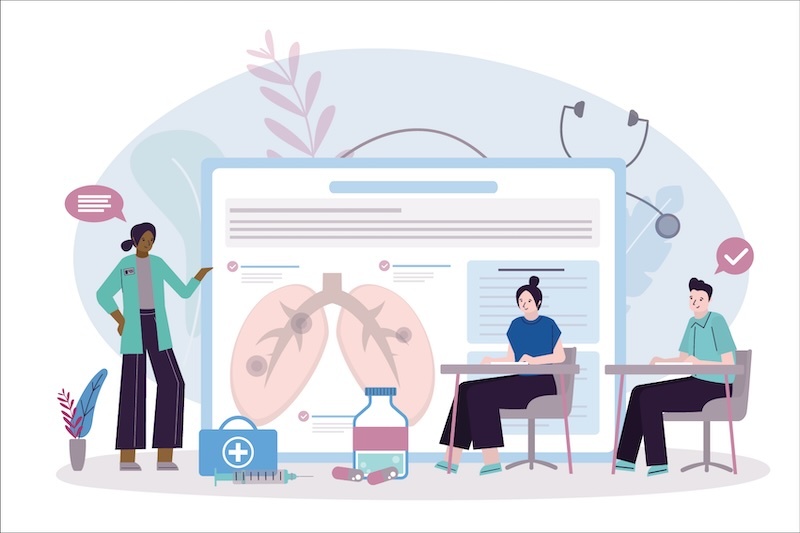Aquifer has introduced an innovative AI-powered feedback feature to improve how medical students learn and practice their clinical reasoning skills. By leveraging cutting-edge natural language processing (NLP) technologies, Aquifer now provides immediate, objective, and detailed feedback on student-generated summary statements—a critical component of clinical reasoning that demonstrates a student’s ability to synthesize complex clinical information effectively.
Traditionally, if done at all, evaluating and providing feedback on these summary statements has been time-consuming and subjective, prone to inconsistencies and delays that can hinder students’ learning experiences. Aquifer’s AI-powered system addresses these challenges, offering a more efficient, consistent, and pedagogically valuable approach to assessing clinical reasoning skills.
How does it work? After completing a virtual patient case, students submit a summary statement encapsulating the patient’s status before making any diagnostic or management plans. The AI has access to established guidelines and the exemplar summary statement for the patient. It uses this information to analyze the submission and provide targeted feedback, highlighting omissions of crucial details, including irrelevant information and other areas for improvement. This immediate feedback allows students to reflect on their performance and identify opportunities for growth in future cases.
The impact of this innovative feature has been substantial, with over 300,000 summary statements submitted for AI feedback across Family Medicine, Internal Medicine, Pediatrics, Neurology, and others. By harnessing the power of AI, Aquifer has created a safe and engaging learning environment that fosters the development of clinical reasoning.
At Aquifer, we continue to refine and expand the AI-powered feedback system. Features in development include giving students feedback on other open-ended prompts and coaching on the next steps in a student’s clinical reasoning journey. This feature is in keeping with our mission to deliver the best health care education through collaborative development and research into innovative, high-impact virtual teaching and learning methods.



